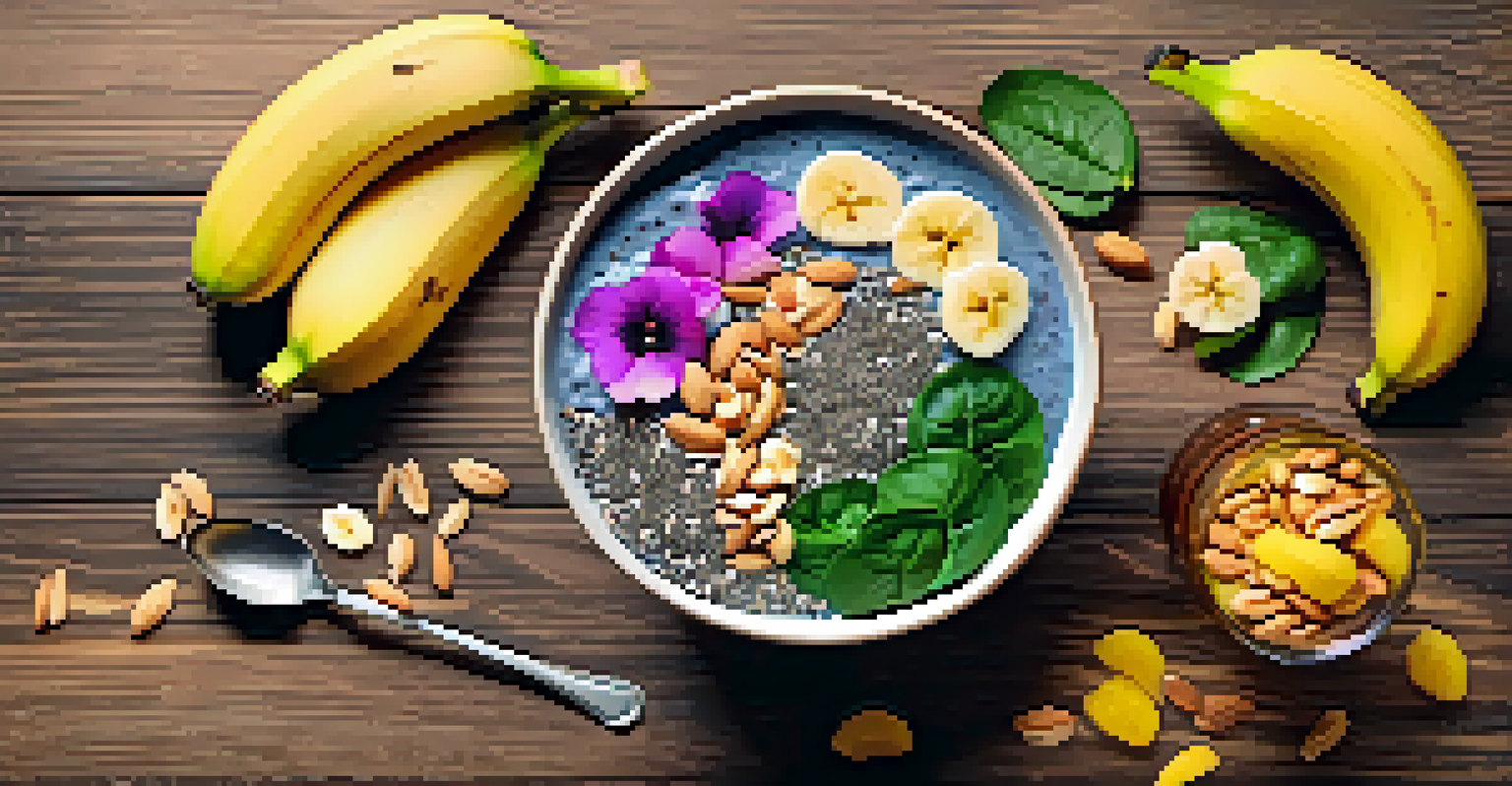How Vitamin B2 (Riboflavin) Supports Overall Health

What Is Vitamin B2 (Riboflavin) and Its Importance?
Vitamin B2, also known as riboflavin, is a water-soluble vitamin that plays a crucial role in energy production. It's one of the eight B vitamins and is essential for converting carbohydrates, fats, and proteins into energy. Without adequate riboflavin, our bodies may struggle to perform daily functions effectively.
A healthy outside starts from the inside.
Riboflavin supports various bodily processes, including the metabolism of iron, which is critical for maintaining healthy blood cells. This vitamin also contributes to the maintenance of healthy skin, eyes, and nerve functions. Essentially, riboflavin is like the spark plug of your body's engine, helping everything run smoothly.
Additionally, since our bodies do not store riboflavin, it's important to consume it regularly through diet or supplements. Foods rich in riboflavin include eggs, dairy products, lean meats, and green leafy vegetables. Incorporating these into your meals can ensure you're getting enough of this vital nutrient.
Riboflavin's Role in Energy Production
One of the key functions of riboflavin is its role in energy metabolism. It helps in the conversion of carbohydrates, proteins, and fats into energy, which our bodies need to function. Think of riboflavin as a team player in a factory, ensuring that each component is effectively utilized for production.

Moreover, riboflavin is a component of coenzymes like FMN and FAD, which are involved in various biochemical reactions. These reactions are essential for cellular respiration, which is how our cells generate energy. Without sufficient riboflavin, this process can slow down, leading to fatigue and decreased performance.
Riboflavin Fuels Energy Production
Vitamin B2, or riboflavin, is essential for converting carbohydrates, fats, and proteins into energy, helping our bodies function effectively.
For those who lead active lifestyles, getting enough riboflavin is crucial. It helps maintain stamina during workouts and daily activities. So, whether you're hitting the gym or chasing after your kids, riboflavin is there to fuel your energy needs.
Antioxidant Properties of Vitamin B2
Riboflavin is not just about energy; it also has powerful antioxidant properties. Antioxidants are substances that help protect our cells from damage caused by free radicals, which can lead to chronic diseases. In this way, riboflavin acts like a shield, safeguarding your body from harmful effects.
Nutrition is not just about eating. It's about learning to live.
The antioxidant effects of riboflavin also support healthy aging. By combatting oxidative stress, it can play a role in reducing the risk of age-related conditions, such as heart disease and certain cancers. This makes riboflavin a valuable ally in the pursuit of longevity and overall well-being.
Incorporating riboflavin-rich foods into your diet can enhance your body's natural defense systems. By doing so, you're not only promoting energy production but also giving your body the tools it needs to fight off potential health issues.
Maintaining Healthy Skin and Eyes with Riboflavin
Riboflavin is essential for maintaining healthy skin and eyes, making it a key player in your beauty routine. It helps to promote skin cell regeneration and can improve the overall texture and appearance of your skin. This is why you might find riboflavin in many skincare products.
Moreover, riboflavin is vital for eye health. It helps reduce the risk of cataracts and other vision problems, acting like a protective barrier against light damage. Think of it as a pair of sunglasses for your eyes, shielding them from harmful rays.
Supports Skin and Eye Health
Riboflavin promotes healthy skin and eyes, aiding in cell regeneration and reducing the risk of cataracts.
To support your skin and eye health, make sure to include riboflavin-rich foods in your diet. Foods like almonds, spinach, and dairy can provide the necessary levels to keep your skin glowing and your vision sharp.
Riboflavin's Influence on Red Blood Cell Production
Riboflavin plays a crucial role in the production of red blood cells, which are responsible for transporting oxygen throughout the body. This process is vital for maintaining energy levels and overall health. In a way, riboflavin acts as a conductor in an orchestra, ensuring that everything is in harmony.
An adequate intake of riboflavin can help prevent anemia, a condition characterized by a lack of healthy red blood cells. Symptoms of anemia can include fatigue, weakness, and pale skin, which are all signs that your body may not be getting enough oxygen. By supporting red blood cell production, riboflavin helps keep these symptoms at bay.
Incorporating sources of riboflavin into your diet can help support your blood health. Foods such as liver, eggs, and green vegetables are excellent choices to boost your riboflavin intake and, consequently, your red blood cell production.
The Connection Between Riboflavin and Mental Health
Riboflavin might not be the first vitamin that comes to mind when thinking about mental health, but it plays an essential role in brain function. It supports the production of neurotransmitters, which are chemicals that help transmit signals in the brain. This means that riboflavin can contribute to better mood regulation and cognitive function.
A deficiency in riboflavin has been linked to increased anxiety and depressive symptoms. By ensuring adequate intake of riboflavin, you can help support your mental well-being. Imagine riboflavin as a little helper in your brain, keeping everything running smoothly and positively.
Boosts Mental Well-Being
Riboflavin plays a key role in brain function by supporting neurotransmitter production, which contributes to mood regulation.
Foods that are rich in riboflavin can be easily incorporated into your meals. Consider enjoying a breakfast of eggs and spinach or a snack of yogurt and almonds to give your brain the boost it needs.
How to Incorporate More Riboflavin in Your Diet
Incorporating riboflavin into your diet is quite straightforward. Focus on including a variety of riboflavin-rich foods, such as dairy products, eggs, lean meats, nuts, and green leafy vegetables. This variety not only ensures you get enough riboflavin but also keeps your meals interesting and delicious.
If you're vegetarian or vegan, consider foods like fortified cereals, legumes, and nutritional yeast as sources of riboflavin. These options can help you meet your nutritional needs while adhering to your dietary preferences. It's like having a treasure chest of choices at your disposal!

Lastly, if you suspect you’re not getting enough riboflavin from your diet, consult with a healthcare professional about the possibility of supplements. They can guide you on the right dosage and ensure you're supporting your health effectively.